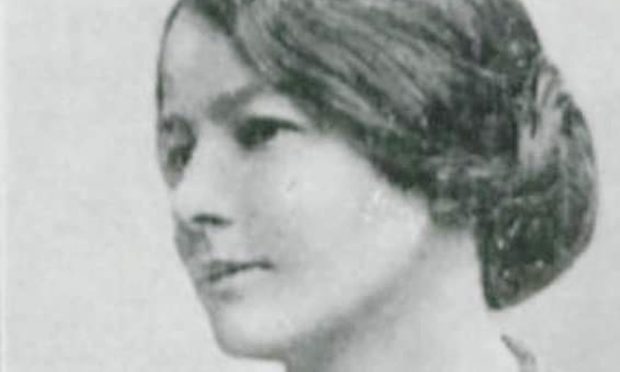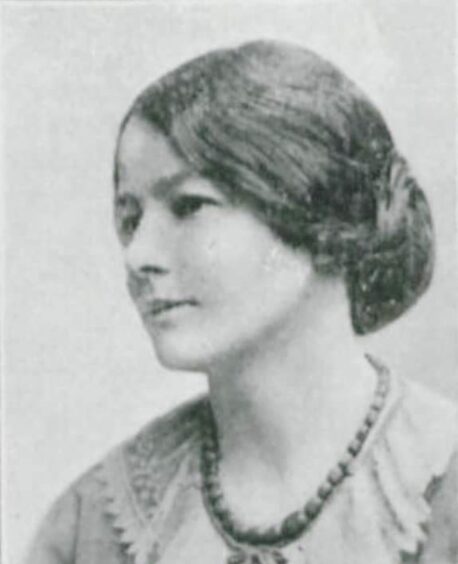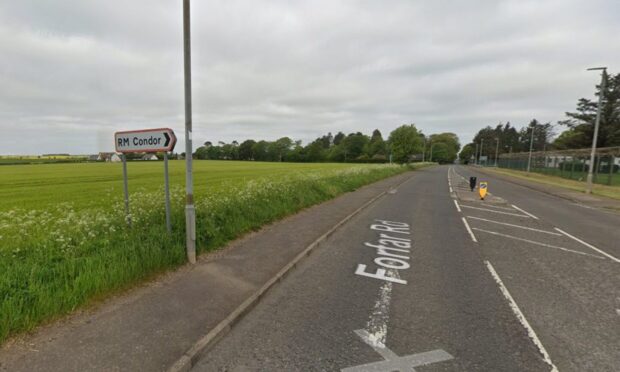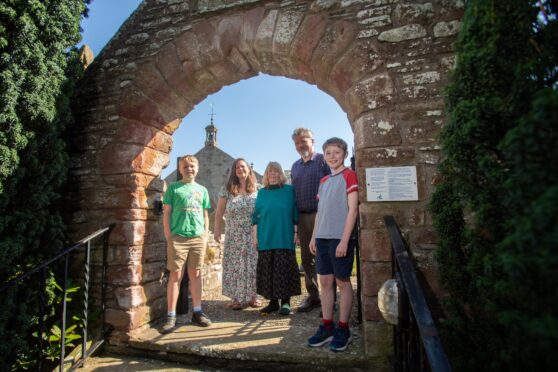An Angus nurse who died treating captured German soldiers in an English hospital weeks before Armistice Day would likely have survived if she was deployed to France.
Helena Stewart Bennet from Arbroath was posted to a Prisoner of War camp hospital at Oswestry in Shropshire on September 30 1918.
But the 30-year-old fell ill after an outbreak of influenza and pneumonia there.
She succumbed to illness just 24 days before an agreement to end the fighting was signed.
In a tragic irony, it’s claimed she would probably have survived had the compassionate young woman ignored her parents’ pleas not to go to the deadly Western Front.
Princes Street Gardens church memorial
On Remembrance weekend, tributes will be paid to the unsung Angus heroine in her home town and the Edinburgh kirk where she is honoured.
Miss Bennet served with Queen Alexandra’s Imperial Military Nursing Service as a staff nurse – part of the British Army – and trained at Edinburgh Royal Infirmary.
She worshipped at the Parish Church of St Cuthbert in Princes Street Gardens.
Helena is the only woman to be commemorated on the wall of its memorial chapel, alongside 156 men who fell in the First World War.
Parish minister Rev Peter Sutton will lead remembrance of them on Sunday.
Poignant and compelling story
He described Miss Bennet’s story as poignant and compelling because her parents begged her not to go to the Western Front, one of the main theatres of war.
Mr Sutton, a former Black Watch Captain, said: “Her death is one of the saddest of all because she never served overseas, never witnessed the horrors of the trenches first-hand yet saw the consequences and died in the UK just weeks after enlisting.
“She was a young woman originally from Arbroath who qualified as a nurse and wanted to do her bit.
“It was coming to the end of the war and her parents said ‘whatever you do, please don’t go out to France because we will never see you again’.
“Their wish came true because she was posted to a camp in Shropshire to care for German prisoners of war.
“Tragically, influenza struck the camp, literally a few weeks before Armistice Day, and she, along with many German soldiers, died.
“The irony is she probably would have been safer had she gone to France.
“I think the beautiful thing about her story is that she is an individual, despite the concerns of her parents, which are fully understandable, who decided that she had to go and do her duty.
“As a nurse, she had already decided what sort of person she wanted to be.
“And like modern day healthcare workers, particularly during the pandemic, is a unsung heroine.”
Modern day parallel
He added: “I find her story so poignant because one of my five daughters is currently serving with the mine clearing organisation, Halo Trust, in Kyiv, Ukraine.
“Like Helena’s parents, I had that conversation with my daughter – ‘you must do what you think is right for you but stay safe, stay well’.
The Memorial Chapel is the oldest part of the existing church building in Edinburgh.
Crime writer Agatha Christie married her second husband, Max Mallowan, there in a low-key ceremony in 1930.
Mr Sutton said: “None of the names etched on the walls have ranks or status attached to them because they’re all of equal importance in terms of their sacrifice.
“It is rather special to have a female name there because there are very few World War One memorials in Scotland that include the names of women.
Miss Bennet is also remembered with honour at Arbroath Western Cemetery, a Commonwealth War Graves site.












